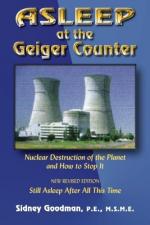|
This section contains 519 words (approx. 2 pages at 300 words per page) |

|
An active area of research in physics in the early 1900s was the attempt to develop instruments to detect and count various types of radiation. Since radiation cannot be discerned by any of the human senses unaided, such devices were essential to any study of radioactivity, discovered in 1896. One of the most important among the early detection instruments invented during this time was the Geiger counter, first developed by Hans Geiger in 1908.
Born in Neustadt, Rheinland-Pfalz, on September 30, 1882, Geiger began his studies in physics at the University of Munich, and completed his doctorate at Erlangen in 1906. In the same year, he accepted a position as research assistant at the University of Manchester, where Ernest Rutherford became director in 1907. Over the next decade, Rutherford and Geiger collaborated on a number of fundamental research studies on the nature of alpha rays and alpha particles. At the outbreak of...
|
This section contains 519 words (approx. 2 pages at 300 words per page) |

|


